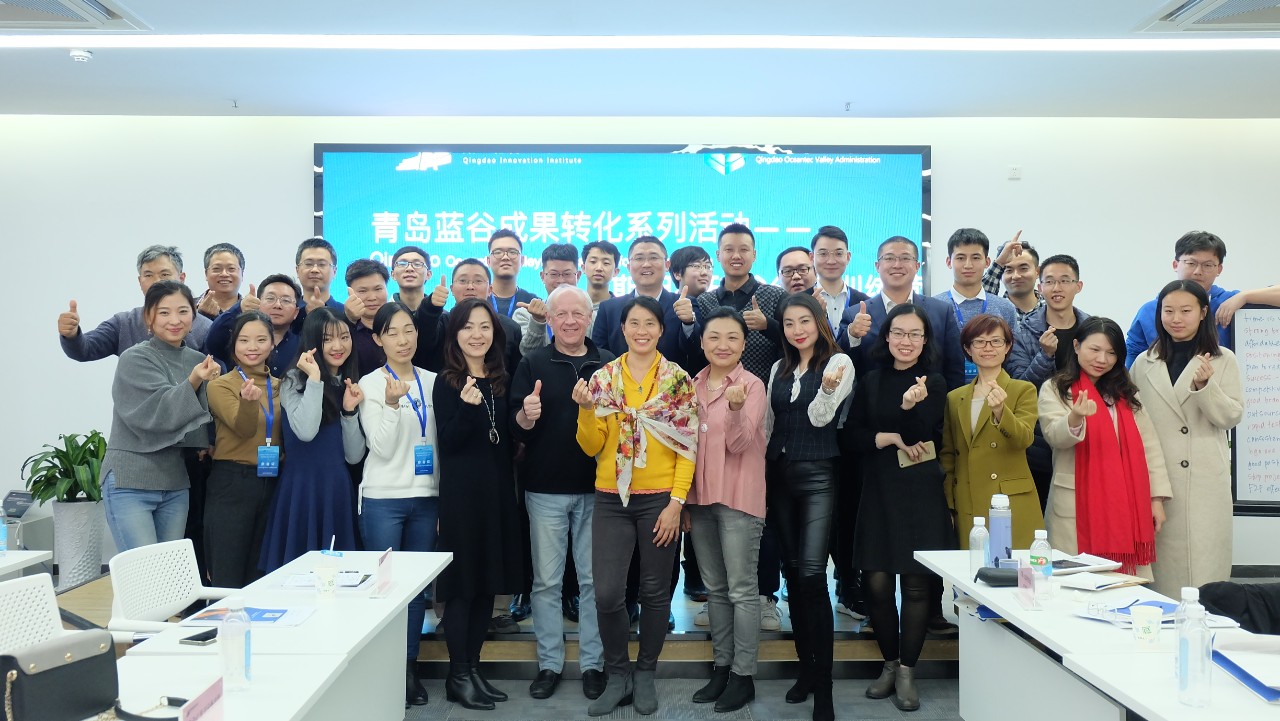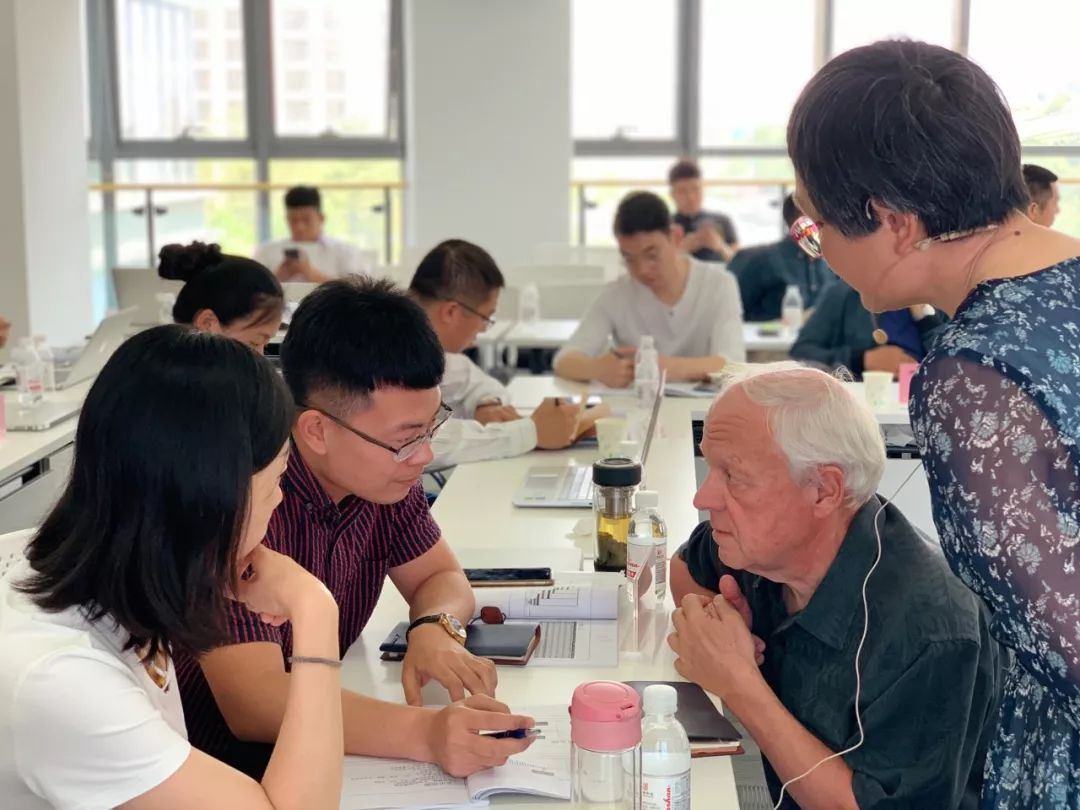Hello, Claude, and thank you for your participation in our "Why Consulting?" series
AFAM: Please tell us more about what your consulting role is about?
Claude: I started an innovation consulting firm (SVA Innovation) with a partner a year ago. We have 8 part-time employees in Silicon Valley, 1 in Japan and 12 full-time in China. We offer several programs: incubation for entrepreneurs prior to raising venture capital funding, innovation management for established companies and we assist western companies who want to establish themselves in the Chinese market. As in every small firm, my partner and I do just about everything that is needed to get business and to make clients happy with our services.
AFAM: How did you get where you are now?
Claude: After school (Angers 74 and Stanford MBA 82) I spent 23 years at Intel where I managed several divisions and ended up running Intel Capital International, part of the corporate VC arm. Then I worked in a small independent venture capital firm, started a solar company, and joined several boards of directors of private and public companies. My last corporate job was at SRI International, an R&D organization, where I was managing the Center for Innovation Leadership. So, over the years, I have learned about managing technology, taking it to market, raising money and making a return for investors. My colleagues all have similar profiles: successful executives, board members, investors.
AFAM: What does your typical day look like?
Claude: There is really nothing like a typical day. I have 4 primary activities and the mix changes all the time. First, I need to find clients, so I spend a lot of time on the phone/email/WeChat/etc, generating proposals, price quotes and the like. Then when we have a new assignment we need to create the information we will need to satisfy the client’s requirements (PowerPoint skills are important). This involves a lot of interaction with the client and with my team of consultants. Then when we deliver the results or hold a workshop we travel to the client’s office, China, Japan and Korea for the most part. This means a lot of public speaking. Finally, is what I call administrative minutiae: accounting, paychecks, taxes, office supplies, travel arrangements and more.
AFAM: What do you like in your consulting role?
Claude: The most important aspect is that I work with smart people all the time. I get exposed to many new technologies and markets. I find this very stimulating. Of course, I am trying to make the clients benefit from my experience but at the same time I am learning a lot from them. In addition, I am at a stage in my professional life where I can decide who I work with, and that includes respectfully declining to work with difficult clients and consultants (the “No assholes” rule).
AFAM: What are the challenges of the consulting job?
Claude: This may seem obvious but before you can actually start a consulting assignment you need to have clients. So, half my time is spent on business development, that is finding new clients. I also do a lot of follow-up with past clients to try and get more business from them. I suppose I would have the same challenges if I had started a bakery or a car repair shop.
Beyond that, the top issue is to make sure the client’s expectations are aligned with what we can reasonably provide. As an extreme example, we had a government official ask us last year to create unicorn start-ups in his city which had a strong manufacturing base but no university and no investors. We passed. Setting expectations correctly at the beginning is a key element of client satisfaction.
AFAM: I can't refrain from asking, how did the recent corona virus outbreak influence your day-to-day work?
Claude: I came back from China two days before Wuhan went into lockdown and right as my staff members were leaving to go see their families for Chinese New Year. They were not able to come back to the office until 6 weeks later. We adapted by working online from Silicon Valley and all over China. We turned several of our innovation workshops into on-line sessions that we are started to deploy this month (March 2020). We have not lost any business but we have not been able to get any new one, of course. I have spent more time generating proposals for prospective clients in Japan and Hong Kong.
AFAM: What skills and qualities do engineers need to be successful consultants?
Claude: You need to understand that consulting is a people business. You can start in a large firm such as Bain, BCG, McKinsey or Pwc as an analyst and if you want to really succeed and make it to the top, you must excel at client contact and relationship. If you start your own firm like I did, you have the same set of issues. The analytical skills learned in engineering skill school are super useful to get started, they are the base upon which you can build new skills and a practice.
You also need to be comfortable with the fact that in a consulting role you suggest to the client what to do but in the end, he decides and you do not implement your own ideas. Imagine designing a wonderful new machine and having someone else build it. Some days this can get frustrating and you must accept that is an integral part of the consulting profession.
AFAM: What advice would you give to an engineering student who wants to work in consulting? Start as a junior in a large management consulting company, find an internship in a boutique firm, become an expert in a certain field before breaking into consulting........?
Claude: I believe, there are two possible paths to a consulting profession. One is to start early in one of the big consulting firms such as those mentioned above. You will learn on the job and become a professional consultant. The other is to wait until later in your career, when you have experience and expertise to monetize. Either one is fine, it really all depends on what sort of business life you prefer to have. If you put your heart and energy into either path, you will succeed.

Photo courtesy of Claude Leglise: US consultants, China staff at SVA Innovation and the participants in the first incubation program in Qingdao

Photo courtesy of Claude Leglise: 1x1 conversation with an entrepreneur
For more information about please visit SVA Innovation website
Other interviews in our "Why Consulting?" series
Interview with Maxime Crépin (Bo 210), Bain and Company
Interview with François Théry (Li 96), Accenture

 BLOG /
BLOG /  CALENDAR /
CALENDAR /  DONATIONS /
DONATIONS /  MENTORS /
MENTORS /